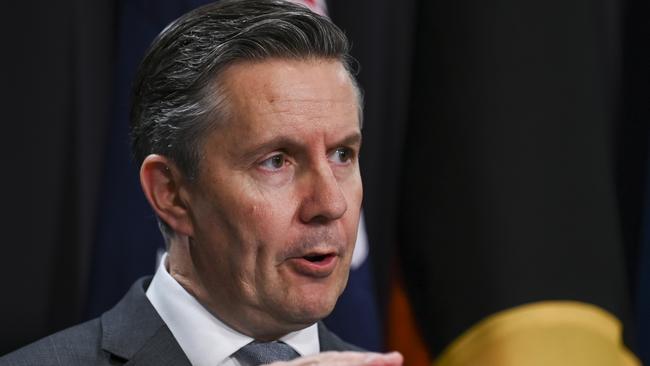‘We failed Aussies stranded overseas by Covid’, says parliamentary committee
A parliamentary committee says the former government should have ‘done more’ during Covid to provide quarantine facilities for Australians trying to get home.

A parliamentary committee says the former government should have “done more” during Covid to provide quarantine facilities for Australians trying to get home and there was a “lack of preparation” in managing the crisis.
Following an inquiry into DFAT’s crisis management during the pandemic, the joint committee recommended an audit of the commonwealth crisis management framework and for human rights to be given greater weight in future.
Australia’s hotel quarantine arrangements came under fire during the pandemic, with many facilities in Victoria becoming the centre of outbreaks. It followed the nation’s borders being closed to all non-citizens and non-residents in March 2020 and travellers being required to quarantine for 14 days upon their return to Australia.
While more than 30 evacuation flights took place between February and June 2020, the committee noted a “gap of about four months” from the end of June when no flights were facilitated for stranded Australians.
“During the inquiry, it became evident to the committee the complexities involved in DFAT’s efforts to bring Australians home in the midst of various international and domestic travel restrictions and public health requirements,” the committee – chaired by Labor MP Julian Hill – said in a report released on Thursday. “The committee notes the lack of adequate quarantine facilities in Australia was one of the key constraints upon DFAT’s activities in this regard … (and) considers that more could and should have been done by the commonwealth in this space.”
The Australian Human Rights Committee told the committee there had been “significant human rights impacts” as a result of border closures and a total ban on travel from certain countries such as India in May 2021. “The committee acknowledges the AHRC’s concerns that the whole-of-government crisis management framework is silent on the need to consider the protection of human rights as a key factor in a crisis response,” the report says.

“The committee recommends that the … Australian government crisis management framework incorporate human rights considerations … and outline measures to ensure that any crisis response limiting or restricting human rights is necessary, reasonable and proportionate.”
Liberal senator Linda Reynolds, who sat on the committee, said the circumstances and complexities of Covid-19 that faced the former government were “globally unprecedented”.
“There are important lessons to be learnt from all aspects of Australian governments responses to the pandemic. Including the repatriation of Australians from overseas,” she said.
“During the COVID-19 pandemic, the Department of Foreign Affairs and Trade’s crisis framework exponentially expanded to enable it rapidly assist 61,755 Australians return to Australia on 227 government facilities flights in a complex and challenging global environment.
“This was an extraordinary and unprecedented achievement - particularly given the global and domestic constraints.”
She said it was “easy” for Labor in hindsight to take “cheap political shots”.
“This only serves to diminish them, not those who worked so hard to save so many lives,” she said.
The recommendations came as chief medical officer Paul Kelly handed Labor his own report on the handling of the fourth Omicron wave in Australia, which ended last month.
Despite progress on vaccinations and lowering the mortality rate of disabled and First Nations Australians, Professor Kelly warned the nation would “continue to experience waves of Covid-19 infection, which may put pressure on health systems and result in deaths”.
“The next wave may coincide with the winter season, and … there is a risk that co-circulation with other seasonal respiratory viruses such as influenza and respiratory syncytial virus might occur,” he said.
“This makes winter a much more dangerous time, especially for older Australians and people with complex health conditions.”
Health Minister Mark Butler on Thursday announced more than 160,000 people aged 60 to 69 would from next month be given access to the antiviral treatment Paxlovid under the Pharmaceutical Benefits Scheme, which would normally cost up to $1000 per script.







